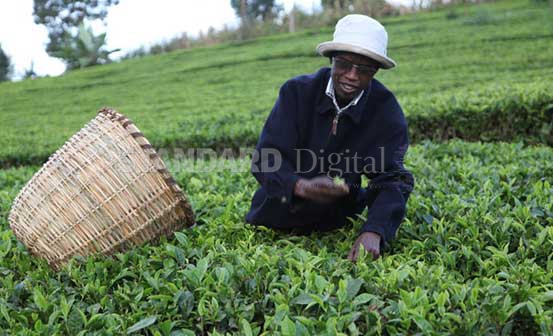
Tea prices in the Mombasa auction dropped by 30 per cent in the last couple of months adversely affecting farmer’s profit margin. The fluctuation in prices has been attributed to a sharp increase in production that led to an oversupply at the auction market.
According to the Ministry of Agriculture, between January and February, production rose by 80 per cent against a limited demand for the product globally. This was revealed during the 22nd session of the FAO-IGG conference on tea held at Enashipai Spa in Naivasha and attended by delegates from various parts of the world.